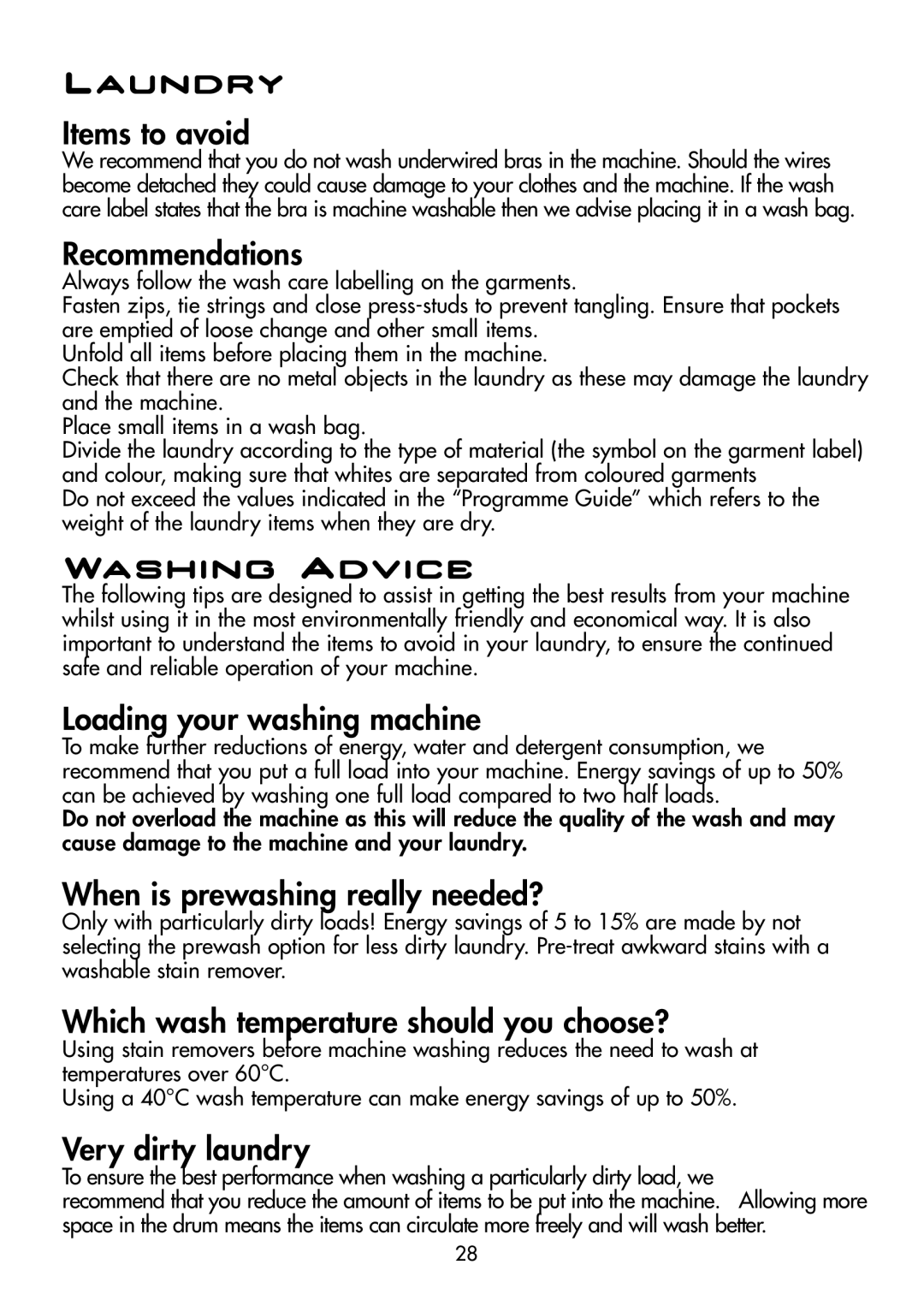DYN D8P specifications
The Hoover DYN D8P is a prominent vacuum cleaner model that encapsulates efficient cleaning technology along with user-friendly design features. Engineered for both performance and convenience, the DYN D8P is perfect for homeowners seeking an effective cleaning solution.One of the standout features of the Hoover DYN D8P is its advanced multi-cylonic technology, which ensures powerful suction performance. This technology utilizes a series of cyclonic filters that separate dirt and debris from the airflow, preventing clogging in the filters and maintaining consistent suction power. This capability makes it adept at picking up various types of dirt, ensuring that carpets, upholstery, and hard floors remain spotless.
The DYN D8P also boasts a large capacity dust container, which reduces the frequency of emptying, making it convenient for larger cleaning tasks. Users will appreciate the easy-release mechanism, allowing for quick disposal of collected debris without messy spills.
Another characteristic worth noting is the vacuum's impressive cleaning radius. With its long power cord and a flexible hose, it reaches deep into corners and tight spaces with ease. This feature minimizes the hassle of plugging and unplugging during cleaning sessions, making it user-friendly and efficient.
Additionally, the DYN D8P includes a range of specialized tools to tackle various cleaning challenges. The combination tool is perfect for switching between carpet and hard floor cleaning, while the crevice tool assists in accessing those hard-to-reach areas. The upholstery tool is designed to clean furniture and car interiors, showcasing the versatility of this model.
Noise levels have also been considered in the design of the DYN D8P, as it operates relatively quietly compared to other models in its category. This feature allows for a more pleasant cleaning experience without disturbing family members or pets.
Lastly, the ergonomic design of the DYN D8P enhances portability, featuring a lightweight build that allows users to maneuver it with ease. The vacuum is also equipped with a comfortable handle, making it simple to lift and carry around the home.
In summary, the Hoover DYN D8P combines advanced cleaning technologies, user-friendly features, and versatile attachments, making it a reliable choice for anyone in search of an efficient and effective vacuum cleaner. Whether tackling carpets or hardwood floors, this model delivers outstanding performance tailored to the needs of modern households.
